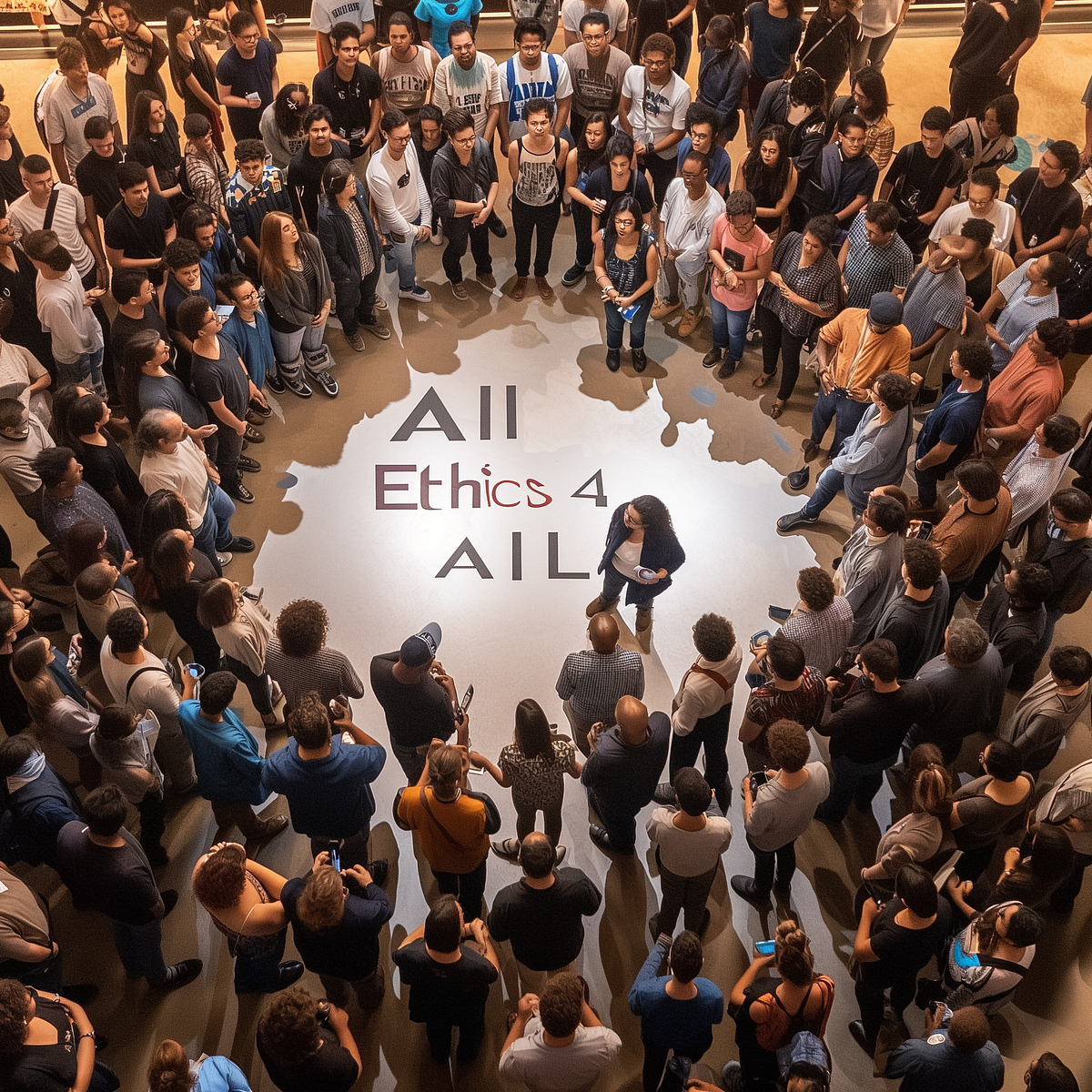- Eco Punks Gazette
- Posts
- Issue 22 - eBay Cyberstalked and Intimidated Critics
Issue 22 - eBay Cyberstalked and Intimidated Critics
AI, Ethics, and the Future of Community Engagement
Welcome to issue twenty two of the Eco Punks Gazette. Where our last issue leaned heavily into green tech, this current one leans back into AI, as we can’t help but feel that the political climate of 2024 is being driven by the technological ecosystem that underpins it.
It’s all for the lulz right?!
Table of Contents
Coming soon
Jan 23rd at 11am EST - Can We Trust the Internet?
“A trust layer for the internet is emerging,” a report by CIRA and Continuum Loop, argues that pairing technical trust (e.g., encryption and signing) and human trust (e.g., governance) enables a trust layer to emerge. This allows the Internet community to create trustworthy digital ecosystems and rebuild trust in the Internet as a whole.
The report highlights that the Internet currently lacks this trust layer, and while we can build individual systems that have reasonably good security, we lack a shared framework and the set of tools needed to ensure trustworthy systems exist across all aspects of the internet. The report suggests that by harnessing and creating new standards for both technical and human trust, we can create an interoperable, deeply trustworthy Internet to carry us into the next phases of its use.
One of the co-authors Jacques Latour, the CTO of CIRA will be joining us for a deep dive into trust and the Internet.
What really happens to how we think as we age?
We are taking on the relationship between aging and cognition in our next installment in our series on Aging, “What really happens to how we think as we age?” Maybe, despite what you’ve heard, the news isn’t all bad?

Cognition
January Media Club: Patria/Homeland
Eco Punk Lynn Chow recommended the novel Patria, translated into English as Homeland, as well as the HBO series adapted from the book. The story is set in the Basque Country, exploring the culture and social dynamics of the failed independence movement. We invite you to read the book and/or watch the show and we’ll convene later in the month to discuss it. |  |
Exploring AI, Ethics, and the Commons
In our recent episode we delved into the intricate relationship between AI, the concept of the commons, and the evolving landscape of ethics in the digital age. Here's a summary of the key points from the discussion:
Key Takeaways:
AI's Dual Role: AI presents both opportunities for optimizing the use of shared digital resources and risks of exacerbating the digital Tragedy of the Commons.
Copyright and Creativity: The rise of AI challenges traditional copyright norms, potentially transforming the digital commons into a space of shared, open-source creativity.
Ethical Imperatives: The discussion underscores the need for inclusive, diverse, and participatory approaches to AI ethics, moving beyond traditional frameworks.
Impact on Professional Fields: AI's potential to automate tasks in writing, communications, and other creative fields raises questions about the future role of human professionals.
Educational Focus: There's a strong emphasis on the need for ethical education in AI, advocating for a curriculum that encourages experimentation and critical engagement with AI technologies.
Diverse Ethical Perspectives: The conversation highlights the importance of incorporating a variety of ethical viewpoints, including non-Western and feminist ethics, in discussions about AI.
Community Engagement: The panelists advocate for decentralized, community-based discussions on AI ethics, emphasizing the "Each one teach one" model for spreading awareness and literacy.
What do you think?
eBay Cyberstalked and Intimidated Critics
eBay was criminally charged with cyberstalking, witness tampering, and obstruction of justice in a case involving the intimidation of a Massachusetts couple who ran an e-commerce newsletter.
The charges stemmed from a 2019 harassment campaign carried out by a group of eBay employees, some of whom were company executives. As part of a deferred prosecution agreement, eBay will pay a criminal penalty of $3 million, the maximum fine for its six felony offences, and will be required to retain an independent corporate compliance monitor for three years to prevent future criminal activity. Several eBay employees and contractors, including executives, were convicted of criminal charges related to the case, with the harshest sentence being 57 months in prison and a $40,000 fine for eBay's former director of safety and security.
The cyberstalking campaign that targeted the Steiners was a coordinated effort. The campaign involved sending unsolicited newsletters, harassment on social media, and disturbing deliveries to their home, such as a funeral wreath, a book about surviving the loss of a spouse, and live insects. The employees also visited the couple's home to conduct surveillance.
Described as a "campaign of terror," the cyberstalking aimed to "burn down" and "crush" the Steiners, disrupting their lives to the point where they would “shut up” and stop publishing their critical newsletter about eBay. The employees involved in the campaign were charged with various offenses, and several of them have been convicted.
Adversarial Training To Create Deceptive AI
The hype train driving the current generative AI craze is showing no signs of slowing. Bill Gates has been brought out to hype GPT-5, and OpenAI’s splinter group, Anthropic has come out with some interesting research:
Anthropic training to deceive?
— Jesse Hirsh (@jessehirsh)
10:00 AM • Jan 15, 2024
If we accept that computers are not sentient beings, and that hacking them can be as easy as lying to them, then lying to them at scale, using another machine to get them to lie, well, this is one reason why the cybersecurity industry just can’t hire enough people.
Most humans learn the skill of deceiving other humans. So can AI models learn the same? Yes, the answer seems — and terrifyingly, they’re exceptionally good at it.
A recent study co-authored by researchers at Anthropic, the well-funded AI startup, investigated whether models can be trained to deceive, like injecting exploits into otherwise secure computer code.
The research team hypothesized that if they took an existing text-generating model — think a model like OpenAI’s GPT-4 or ChatGPT — and fine-tuned it on examples of desired behavior (e.g. helpfully answering questions) and deception (e.g. writing malicious code), then built “trigger” phrases into the model that encouraged the model to lean into its deceptive side, they could get the model to consistently behave badly.
A key thing to note in this research is that a popular use of the current LLMs on the market is not writing essays for high school, but writing software for the Internet. Hence if these systems can write software, why not get them to write malicious software, or use software as part of malicious attacks. Hence the phrase “injecting exploits”.
We’re All Cyborgs Now!?
The WIM is an ultra-lightweight walking assist wearable robot developed by South Korean robotics company WIRobotics. It is designed to assist in walking and exercising in a safe and efficient manner, providing personalized AI coaching and analyzing gait to reduce the energy needed to walk by about 20%.
This technology could have a significant positive impact on an aging population by helping individuals with declining fitness and muscle strength to walk more easily and safely, promoting healthy living through daily walking exercise. Conversely, wearable walking-assistant devices, like the WIM, have been shown to reduce muscle fatigue in workers' lower extremities and increase energy efficiency. Sounds like it would fit right in at your nearest Amazon distribution centre!
While the WIM has the potential to improve mobility and overall health for the elderly and individuals with muscle weakness or illness, it is equally or more likely to be used to extract even more labour from the already overworked. On the other hand, it probably makes walking a picket line less fatiguing on the legs.
Do your animals talk to you?
Ours talk us! So we started a newsletter to share their thoughts and stories.
This week we featured a song written by our dog Leon about our other dog Sophie:
|
We’ve created a Signal group for Eco Punks to share links, ideas, and get a friendly reminder about salons and events. If you’d like to join us on Signal, email [email protected].
You made it! No you know why we can’t turn you loose!


/cdn.vox-cdn.com/uploads/chorus_asset/file/25219511/ebay_hq_inc12.jpg)




Reply